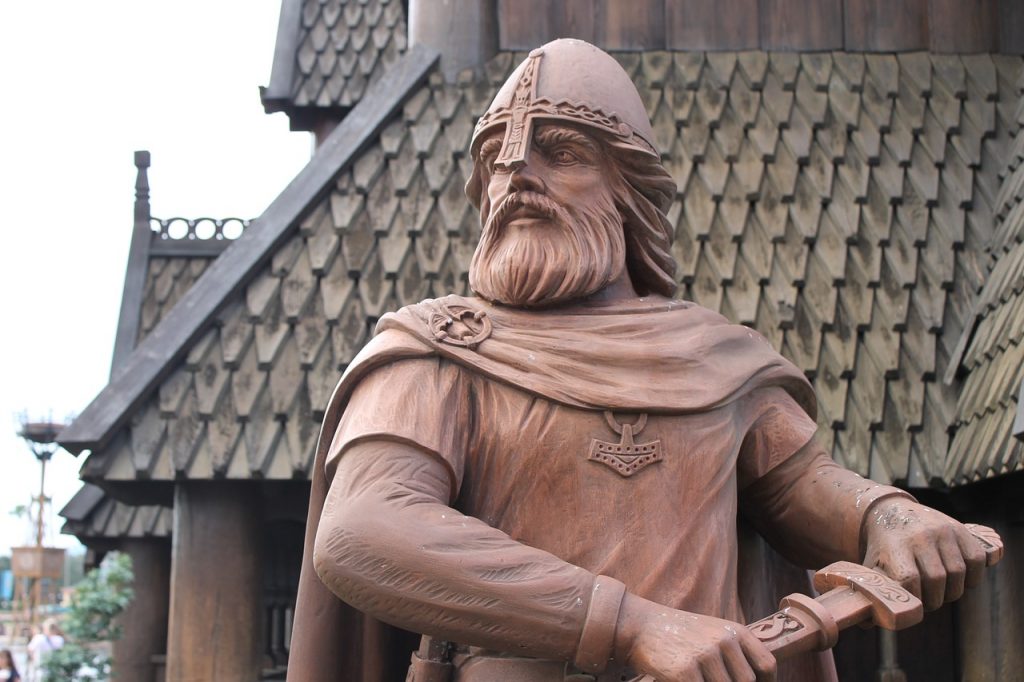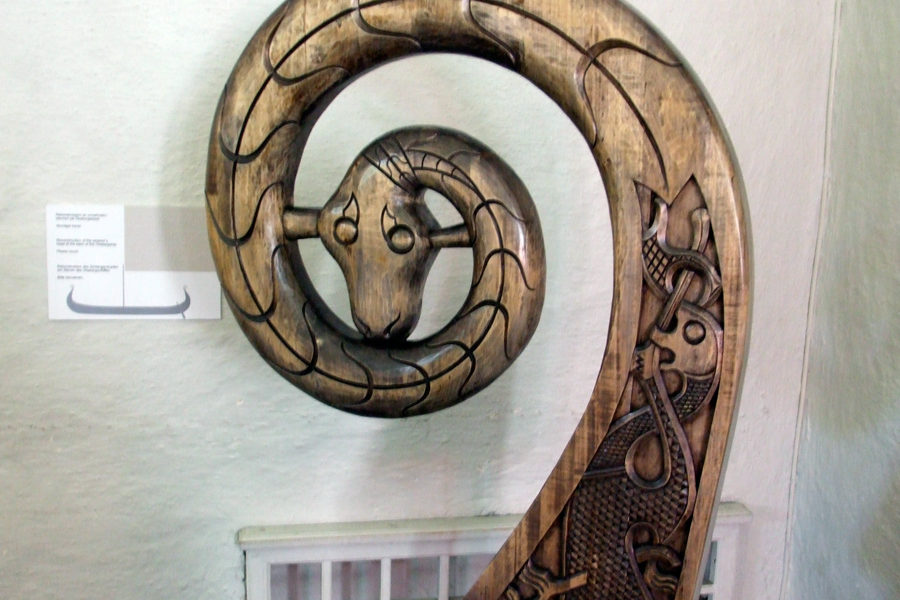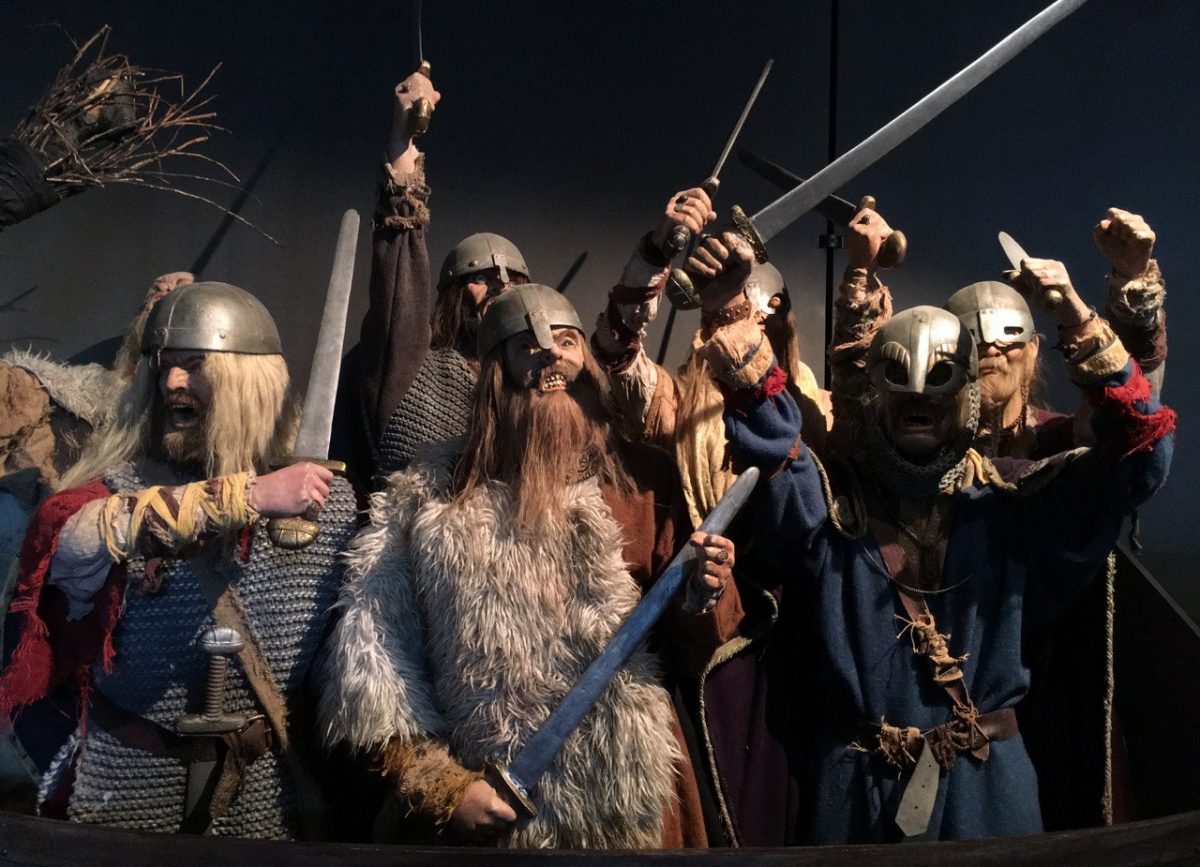
Does the word Viking really mean raider? A University professor gives us the lowdown on the story behind the word.
We all know about the Vikings. Those hairy warriors from Scandinavia who raided and pillaged, and slashed and burned their way across Europe, leaving behind fear and destruction, but also their genes, and some good stories about Thor and Odin.
The stereotypes about Vikings can partly be blamed on Hollywood, or the History Channel. But there is also a stereotype hidden in the word “Viking”. Respectable books and websites will confidently tell you that the Old Norse word “Viking” means “pirate” or “raider”, but is this the case? What does the word really mean, and how should we use it?
There are actually two, or even three, different words that such explanations could refer to. “Viking” in present-day English can be used as a noun (“a Viking”) or an adjective (“a Viking raid”). Ultimately, it derives from a word in Old Norse, but not directly.
The English word “Viking” was revived in the 19th century (an early adopter was Sir Walter Scott) and borrowed from the Scandinavian languages of that time. In Old Norse, there are two words, both nouns: a víkingr is a person, while víking is an activity. Although the English word is ultimately linked to the Old Norse words, they should not be assumed to have the same meanings.
Víkingr and Víking
The etymology of víkingr and víking is hotly debated by scholars, but needn’t detain us because etymology only tells us what the word originally meant when coined, and not necessarily how it was used or what it means now. We don’t know what víkingr and víking meant before the Viking Age (roughly 750-1100AD), but in that period there is evidence of its use by Scandinavians speaking Old Norse.
The laconic but contemporary evidence of runic inscriptions and skaldic verse (Viking Age praise poetry) provides some clues. A víkingr was someone who went on expeditions, usually abroad, usually by sea, and usually in a group with other víkingar (the plural).
Víkingr did not imply any particular ethnicity and it was a fairly neutral term, which could be used of one’s own group or another group. The activity of víking is not specified further, either. It could certainly include raiding, but was not restricted to that.

A pejorative meaning of the word began to develop in the Viking Age, but is clearest in the medieval Icelandic sagas, written two or three centuries later – in the 1300s and 1400s. In them, víkingar were generally ill-intentioned, piratical predators, in the waters around Scandinavia, the Baltic and the British Isles, who needed to be suppressed by Scandinavian kings and other saga heroes.
The Icelandic sagas went on to have an enormous influence on our perceptions of what came to be called the Viking Age, and “Viking” in present-day English is influenced by this pejorative and restricted meaning.
How to use it
The debate between those who would see the Vikings primarily as predatory warriors and those who draw attention to their more constructive activities in exploration, trade and settlement, then, largely boils down to how we understand and use the word Viking.

Restricting it to those who raided and pillaged outside Scandinavia merely perpetuates the pejorative meaning and marks out the Scandinavians as uniquely violent in what was in fact a universally violent world.
Read more: Popular Viking names
A more inclusive meaning acknowledges that raiding and pillaging were just one aspect of the Viking Age, with the mobile Vikings central to the expansive, complex and multicultural activities of the time.
In the academic world, “Viking” is used for people of Scandinavian origin or with Scandinavian connections who were active in trading and settlement as well as piracy and raiding, both within and outside Scandinavia in the period 750-1100.
The Viking Age
The Viking Age was a large and complex phenomenon which went far beyond the purely military, and also absorbed people who were not originally of Scandinavian ethnicity.
As a result, the English word has usefully expanded and developed to give a name to this phenomenon and its Age, and that is how we should use it, without regard either to its etymology, or to its narrower meanings in the distant past.

This article was written by Professor of Viking Studies at the University of Nottingham, and originally published on The Conversation.


I think you have missed the “root” of “Viking” but the prefix “vik”
{Vik (disambiguation) From Wikipedia, the free encyclopedia}
Vik (Old Norse: vík) means wick or bay in Norwegian and Swedish (vig in Danish), and it may refer to the following:….
Take a close look at maps of Denmark, Sweden and Norway and there are a number of towns, some not on the sea like Rattvik on Lake Siljen in Sweden where the name Viking probably originated…i.e. people who came from fjords or bays. It was my first feeling about the word as I traveled extensively in Scandinavia over the years.
That makes a lot of sense. Thanks
When the Norsemen were invaded by the Roman Catholic soldiers, they asked the people who their king was, and they replied “Viking,” which means; “We’re King. “Vi” in German means, “we’re.” (We are king.)
We’re
contraction
pronoun: we’re (we are.)
The English term “king” is derived from the Anglo-Saxon cyning. Evidence suggests a 17th-century origin.
I don’t know about that, I mean wouldn’t it then make sense for it to be something like Wurden-Koenig as king in German is not the English word for “king” and “we’re” is not Vi.. this is obviously modern German but still. I feel like some rules in the language would remain unchanged.
The first mention of the person Thor was in the 7th century AD, after the genocide of the Viking people. It was at that time Thor introduced a small hammer as a weapon, that he called “judgement” from God.” That is why the hammer is called molnija, meaning ‘lightning.’ In the bible the parabolic meaning for the word “Lightning” is “Judgement.” The unknown person said he was a “Son of Thunder,” so the people called him “Thor / Thunder.” The parabolic meaning for the word “Thunder” in the bible is “Action.”
Thor is associated with an Eagle, and one of the four Cherub’s before the throne of God. That is why you would see four Eagles on a Viking shield.
Mark 3:17
James son of Zebedee and his brother John (to them he gave the name Boanerges, which means “sons of thunder”),
Ezekiel 1:10 – 14.
Lightning=Judgement
Thunder= Action